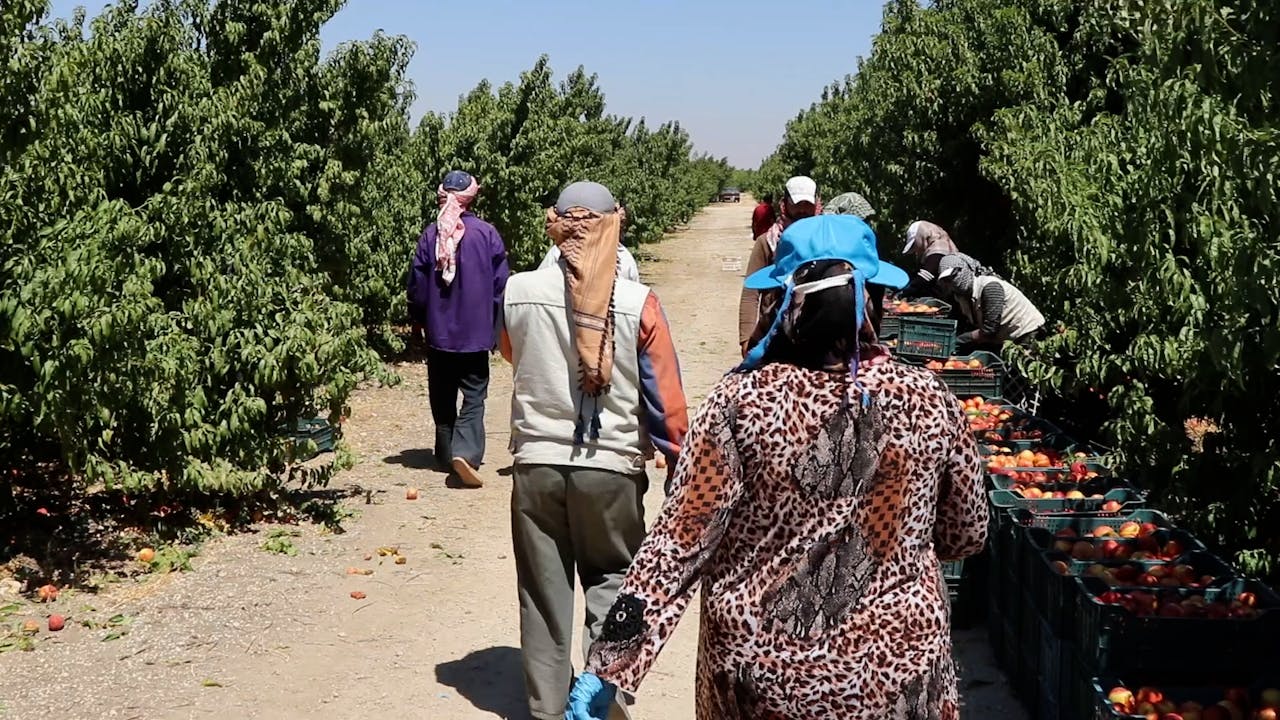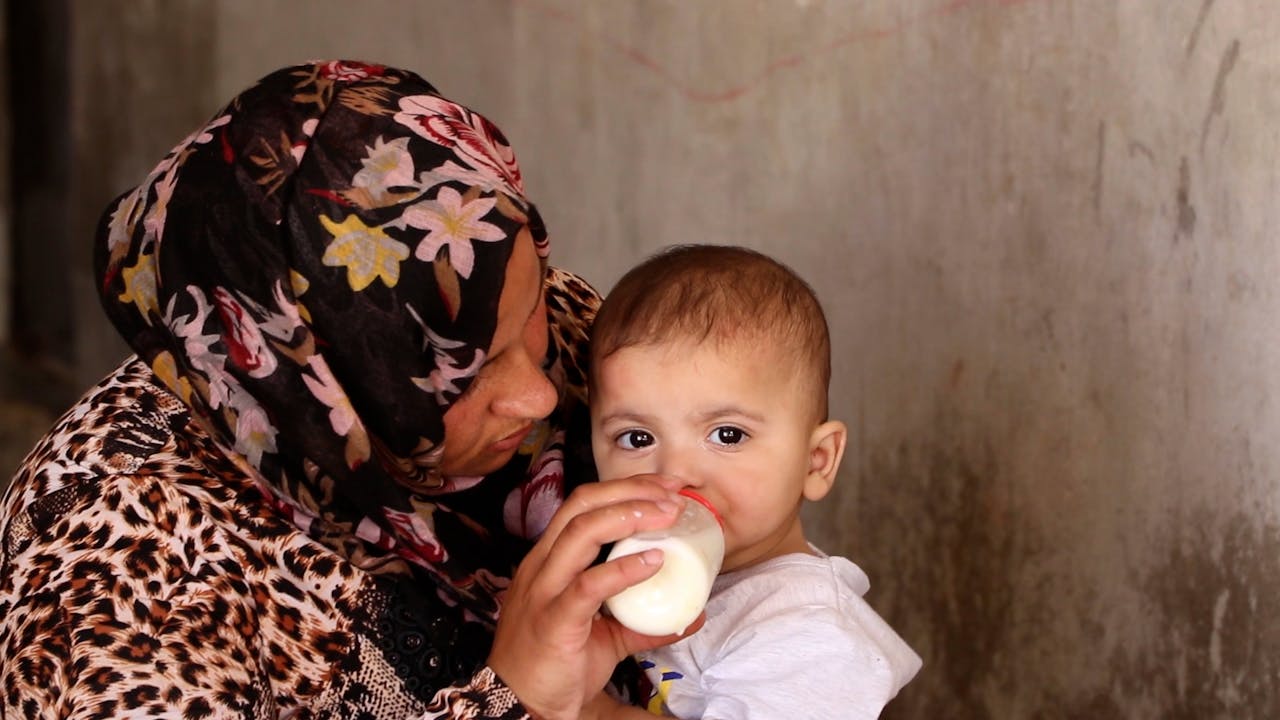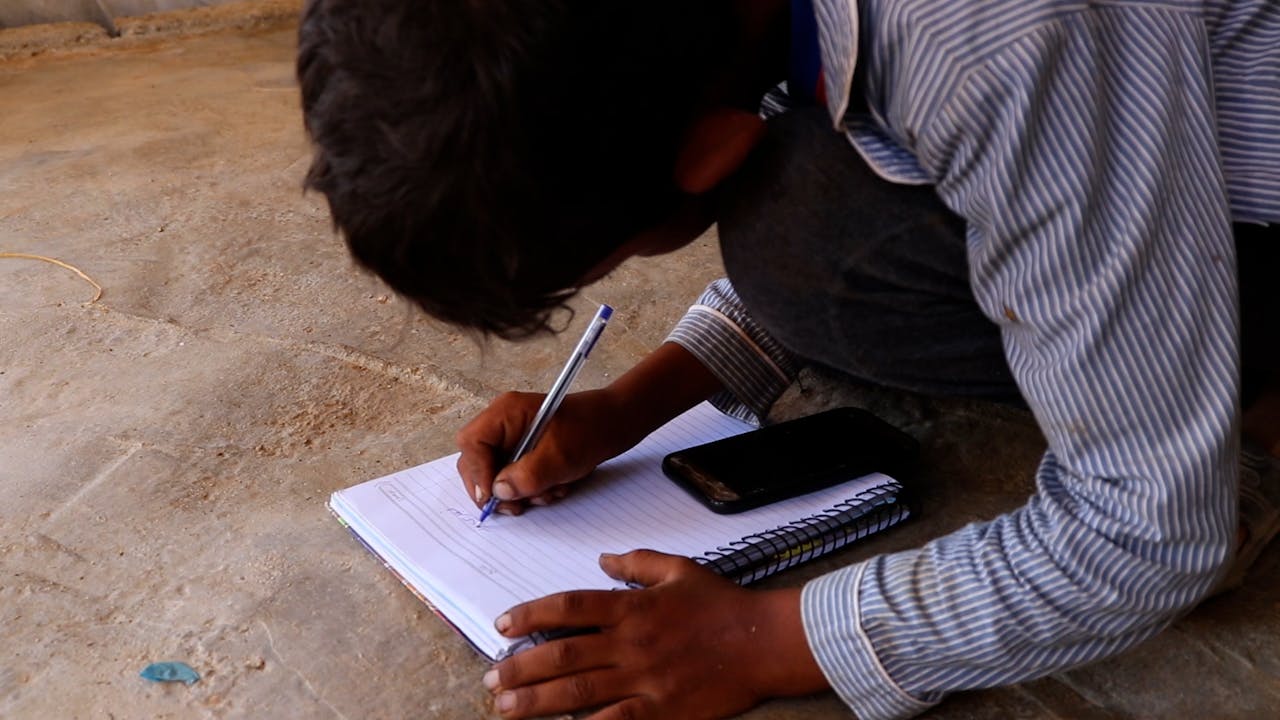I came to Jordan with my family, with my brother and sister. We came here from Syria so we can work and to escape the problems. I got engaged to my husband here and we got married in Mafraq.
We would work in one place for a month. Then we would have to move to a different farm. We were tired because of all the displacement. It was very difficult.
When we came to this farm, they gave us a caravan. We found that living in a caravan is better than living in a tent and it is cleaner for the children and for us. We are now settled at this farm. We stopped moving.
Our daily life
I have four children. My eldest son is six years old. Then there’s my daughter who is five, my other son who is two and my youngest daughter who is seven months old.
When I wake up in the morning, I make the children their breakfast. Then my husband has his breakfast and goes to work. When I finish the housework, I leave the children with a relative and go to work on the farm with the other workers. I work from 7am until around 2pm and then I go back home to my children, because I have a baby girl and this is why I can’t work a full day at the farm. In the afternoon, I milk the sheep and I finish off the housework.

On the farm we pick peaches and tomatoes.
© Abdel Hameed Al NasierThen COVID-19 happened
When we first heard about the coronavirus, we were scared. I started watching the news, going online on my phone, and going on YouTube to learn how to protect myself. We bought all the essentials so we didn’t have to leave the house and mix with others.
At the beginning of the outbreak, we were told that we could not congregate at work. I stopped working for two months.
As a mother, I had to have an income to buy my baby daughter her milk. I would do any job just so I could secure the cost of the milk.

We went through a difficult time. We had to borrow money from people. We had expenses to pay for. As a mother, I had to secure an income to buy my baby daughter her milk and to meet my children’s needs.
I started doing all sorts of work. I helped my husband and the farm owner to take care of the livestock, and in return I was given a small amount of milk, which I used to make yoghurt and cheese. I sold my products in the town of Sabha and then would go to the pharmacy to buy milk for my daughter.
I also faced a lot of pressure at home. I had to cook, clean and disinfect the house twice a day. In the first couple of months of the virus, we couldn’t obtain enough bread, so I was baking bread for the children every two to three days.

Fatima feeds her baby daughter with a bottle of milk.
© Abdel Hameed Al NasierWhen the caravan school (informal education centre) opened at the farm our six-year-old son started going there and he was there for four months. Then they stopped going because of the crisis and they started giving them schoolwork remotely. He knows the letters and numbers and he knows how to write his name.

My son would follow the lessons set by his teachers on WhatsApp and when he finished his lessons, I would teach him some more.
© Abdel Hameed Al NasierI have a neighbour here who is on her own and she is old. I felt sorry for her. I would bake a lot of bread so that I could give her some. We’d give her anything that we had enough of.
There is a lot of collaboration between us and our neighbours. All the people here at the camp help each other and give each other things.
We are happy to be back at work.

After the lockdown ended we were glad to go back to work, so that we can secure an income to meet our needs and our children’s needs.
We are happy to be back at work.
